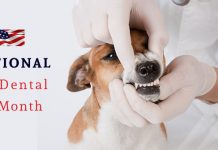Welcoming a new puppy into your home is an exciting and joyful experience, filled with wagging tails, playful antics, and endless cuddles. As you embark on this delightful journey of companionship, it’s essential to prioritize your puppy’s health and well-being from the very start. Just like human infants, puppies are vulnerable to various health threats that can impact their growth and happiness. In this guide, we’ll explore practical steps and nurturing practices to safeguard your furry friend from common health hazards. With a little knowledge and proactive care, you can ensure that your puppy grows into a healthy, thriving adult dog, ready to share a lifetime of love and adventures with you.
Creating a Safe Home Environment for Your Puppy
Bringing a puppy into your home is an exciting adventure, but it also comes with the responsibility of ensuring their safety. Start by puppy-proofing your home to minimize risks. Secure electrical cords to prevent chewing, and install baby gates to restrict access to potentially dangerous areas. Keep household cleaners, medications, and sharp objects out of reach. Consider placing covers on trash cans to prevent curious pups from ingesting harmful substances.
- Use child-proof latches on cabinets.
- Remove small objects that could be choking hazards.
- Check for plants that are toxic to dogs and remove them from your home.
- Ensure windows and balconies are secure to prevent falls.
Creating a safe outdoor space is equally important. Ensure your yard is fenced and free from gaps where a puppy could escape. Regularly inspect for hazardous items like sharp tools or toxic plants. By being proactive, you create a loving and secure environment where your puppy can thrive.

Essential Vaccinations to Shield Your Puppy from Diseases
Welcoming a new puppy into your home is an exciting adventure filled with wagging tails and boundless energy. To ensure your furry friend thrives in good health, vaccinations are a crucial step in safeguarding them from various diseases. As a responsible pet parent, familiarizing yourself with the core vaccines can provide peace of mind and keep your puppy safe.
- Distemper: A highly contagious virus affecting the respiratory, gastrointestinal, and nervous systems. Vaccination is essential to prevent this life-threatening disease.
- Parvovirus: Known for causing severe vomiting and diarrhea, this virus is particularly dangerous for puppies. Early vaccination can help protect against this common threat.
- Rabies: A viral disease that affects the central nervous system and is fatal if contracted. It’s not only crucial for your puppy’s health but is also legally required in many areas.
- Adenovirus: Responsible for infectious hepatitis, this vaccine helps protect your puppy from liver and eye damage, as well as respiratory infections.
Consulting with your veterinarian about the appropriate vaccination schedule is the best way to tailor a health plan specific to your puppy’s needs. With the right precautions, you can ensure your new companion grows up strong and healthy, ready to embark on countless adventures by your side.

Recognizing Early Signs of Illness in Your Puppy
Our furry friends often can’t tell us when they’re feeling under the weather, so it’s crucial to be vigilant about changes in their behavior and appearance. Some subtle indicators that your puppy might be unwell include:
- Lethargy: A sudden lack of energy or enthusiasm for play could be a sign of discomfort.
- Appetite Changes: Eating significantly less or more than usual warrants a closer look.
- Digestive Issues: Persistent diarrhea or vomiting can quickly lead to dehydration.
- Respiratory Symptoms: Coughing, sneezing, or difficulty breathing might indicate an infection.
- Behavioral Changes: Uncharacteristic aggression or withdrawal can signal stress or pain.
By keeping an eye out for these early signs, you can ensure timely veterinary care, safeguarding your puppy’s health and happiness. Remember, early intervention is key to preventing more serious health issues down the road.

Nourishing Your Puppy with a Balanced Diet for Optimal Health
Ensuring your puppy receives a balanced diet is fundamental to their growth and overall well-being. A well-rounded meal plan is not just about filling their tummies; it’s about nurturing their developing bodies and supporting their immune systems. Prioritize high-quality proteins to aid muscle development and repair, and incorporate essential fatty acids for a healthy coat and skin. Calcium and phosphorus are crucial for bone health, while vitamins and minerals support various bodily functions and help fend off infections.
Here are some key components to include in your puppy’s diet:
- Proteins: Choose lean meats like chicken, turkey, or fish.
- Carbohydrates: Provide energy through brown rice, sweet potatoes, or oats.
- Fats: Include sources like fish oil or flaxseed for a shiny coat.
- Fruits and Vegetables: Add carrots, blueberries, and spinach for antioxidants and fiber.
- Supplements: Consult your vet for advice on supplements such as probiotics or glucosamine.
Remember, every puppy is unique, so it’s vital to tailor their diet to their specific needs and monitor their health closely. Regular check-ups with your vet will ensure your furry friend is thriving and ready to take on the world with boundless energy and joy.
















